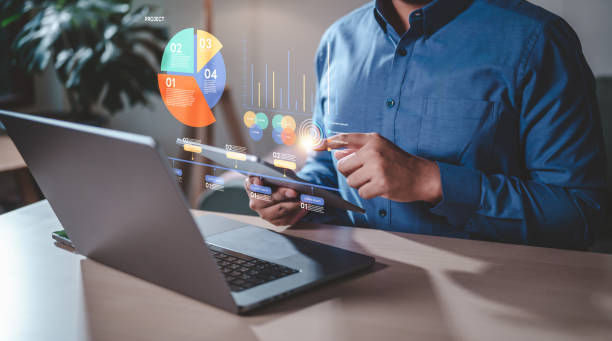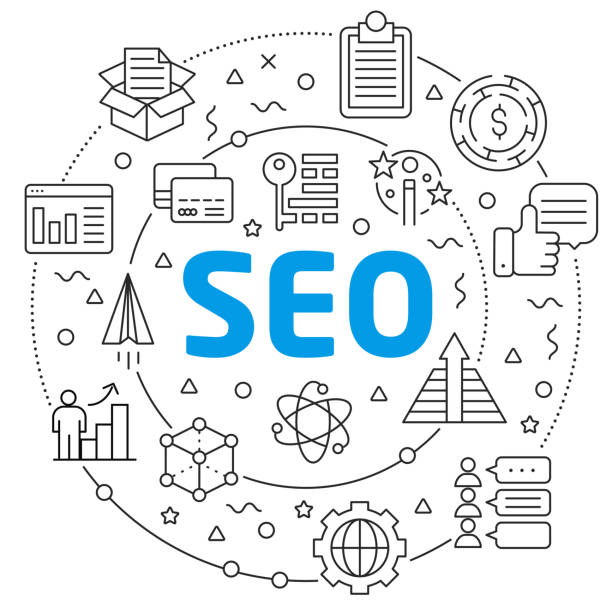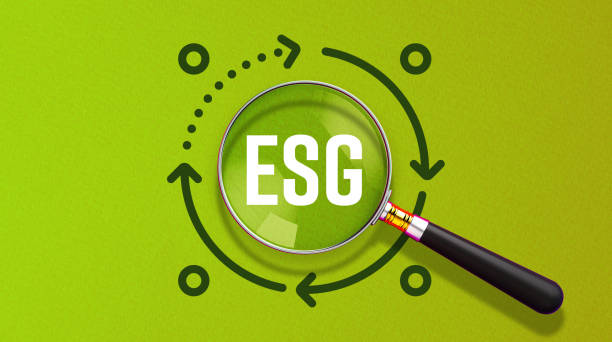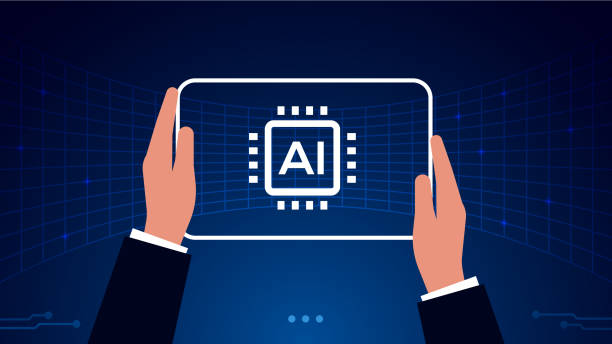What is SEO and why is it important?

What is SEO and why is it important?
#SEO (Search Engine Optimization) refers to a set of activities that are carried out to improve the ranking of a website in search engine results such as Google, Bing, and Yahoo.
The main goal of SEO is to increase organic (non-paid) website traffic.
Organic traffic refers to visitors who reach your website through searches on search engines.
SEO is not just about increasing ranking, but also about providing the best user experience and relevant content to users.
The importance of SEO can be examined from several aspects. Firstly, most internet users use search engines to find information, products, or services.
If your website appears on the first pages of search results, it is much more likely that users will click on it and visit your website.
Secondly, organic traffic is usually of higher quality than other types of traffic (such as paid traffic) because users who enter your website through search are looking for information or products that you offer.
Thirdly, SEO is a long-term investment.
Although it may take some time to see the results of SEO, as your website’s ranking improves, organic traffic will steadily increase.
Therefore, SEO is an essential strategy for any business that wants to strengthen its online presence.
In addition to these, SEO helps to improve the credibility and trust of your website among users.
Websites that rank high in search results are usually recognized as authoritative and reliable sources.
This can lead to an increase in conversion rates (converting visitors into customers) and improved customer loyalty.
Finally, SEO can help reduce your marketing costs.
By attracting organic traffic, you can reduce your paid advertising costs and instead focus on improving website quality and providing valuable content.
Did you know that 94% of users’ first impressions of a business are related to its website design? With professional corporate website design by **Rasaweb**, turn that first impression into an opportunity for growth.
✅ Attract more customers and increase sales
✅ Create credibility and trust in the eyes of the audience⚡ Get a free website design consultation!
Keyword Research – Finding Golden SEO Opportunities

Keyword Research – Finding Golden SEO Opportunities
Keyword Research is one of the most important steps in SEO.
Keywords are the phrases that users enter into search engines to find the information they need.
The goal of keyword research is to find words that are relevant to your business and have a high search volume, but the competition for them is relatively low.
These keywords are golden opportunities for SEO that can drive a lot of organic traffic to your website.
To conduct keyword research, you can use various tools.
Some popular keyword research tools include Google Keyword Planner, Ahrefs, SEMrush, and Moz Keyword Explorer.
These tools help you find search volume, competition level, and keywords related to your business.
When choosing keywords, pay attention to the following points: Relevance: Keywords should be relevant to your business and website content. Search Volume: Keywords should have a high search volume to drive significant organic traffic to your website.
Competition Level: Keywords should have a low competition level so that you can more easily improve your website’s ranking in search results.
In addition, look for Long-Tail Keywords.
Long-tail keywords are longer, more specific search phrases that usually have lower search volume, but the competition for them is also lower.
These keywords can drive high-quality organic traffic to your website because users who use these keywords are usually looking for specific information or products.
After finding the right keywords, use them in your website content.
Include keywords in titles, meta descriptions, body text, and other parts of your website.
But be careful not to use keywords artificially and excessively, as this can lead to your website being penalized by search engines.
Your goal should be to create valuable and relevant content for users and incorporate keywords naturally.
On-Page SEO – Optimizing Site Structure and Content

On-Page SEO – Optimizing Site Structure and Content
On-Page SEO refers to a set of actions taken to optimize the structure and content of a website.
The goal of on-page SEO is to improve the website’s ranking in search results and provide the best user experience to visitors.
On-page SEO includes various aspects, including optimizing titles, meta descriptions, URL structure, page content, images, and internal links.
One of the most important factors of on-page SEO is optimizing titles and meta descriptions.
Title Tags and Meta Descriptions are summaries of page content that appear in search results.
Titles should be attractive and relevant to the page content and include the main keywords.
Meta descriptions should also provide a brief and compelling description of the page content and encourage users to click on your website.
Optimizing URL structure is also very important.
URLs should be short, descriptive, and include keywords.
Avoid using long and complex URLs.
Also, use keywords in headings (H1, H2, H3, etc.).
Headings help search engines understand the structure and main topic of the page.
Page content should be valuable, relevant, and unique.
Avoid copying content from other websites.
Update content regularly and use relevant images and videos.
Optimizing images is also important.
Save images in the appropriate format (such as JPEG or PNG) and use the Alt tag to describe the images.
The Alt tag helps search engines understand the content of the images.
Internal Links also play an important role in on-page SEO.
Internal links are links that point from one page on your website to another page on the same website.
Internal links help search engines understand the structure of your website and identify the more important pages.
In addition, internal links can help improve user experience and direct users to relevant pages.
| On-Page SEO Factor | Description |
|---|---|
| Page Title (Title Tag) | The page title should be attractive and relevant and include the main keyword. |
| Meta Description | The meta description should be brief and compelling and encourage users to click. |
| URL Structure | The URL should be short, descriptive, and include the keyword. |
| Page Content | The content should be valuable, relevant, and unique. |
| Images | Images should be saved in the appropriate format and have Alt tags. |
| Internal Links | Internal links help search engines understand the site structure. |
Off-Page SEO – Building Credibility and Increasing Ranking

Off-Page SEO – Building Credibility and Increasing Ranking
Off-Page SEO refers to a set of activities that are carried out outside of your website and aim to increase the credibility and ranking of the website in search results.
Off-page SEO includes things like link building, social media marketing, branding, and public relations.
One of the most important factors of off-page SEO is Link Building.
Link building refers to the process of receiving links from other websites to your website.
The more inbound links your website has, and the more reputable those websites are, the more the credibility of your website will increase in the eyes of search engines.
You can use various methods for link building.
Some common link building methods include creating valuable and shareable content, participating in online forums and groups, writing guest posts on other blogs, building relationships with influencers and reputable websites, and submitting your website to online directories.
When link building, pay attention to the quality of the links.
Links that you receive from relevant, reputable, and high-quality websites are more valuable.
Avoid receiving links from spam and low-quality websites, as this can harm your website’s ranking.
Social Media Marketing also plays an important role in off-page SEO.
Social networks can help increase your website traffic, increase brand awareness, and build relationships with customers.
By publishing valuable and engaging content on social networks, you can drive users to your website and increase your brand’s credibility.
Branding is also of great importance.
The more well-known and reputable your brand is, the more likely users are to click on your website and use your services.
You can use various methods for branding, including creating an attractive logo, providing quality services, and being actively present in the media.
Public Relations can also help with off-page SEO.
By building relationships with journalists and the media, you can put your brand name in the public eye and receive links to your website.
In general, off-page SEO helps to build credibility and increase the ranking of your website in search results.
By continuously performing off-page SEO activities, you can increase your website’s organic traffic and boost your business.
Did you know that 85% of customers check your company’s website before any interaction?
With Rasaweb, build a corporate website that deserves your credibility.
✅ Increase customer credibility and trust
✅ Attract high-quality leads
⚡ Get a free website design consultation
User Experience (UX) and its Impact on SEO

User Experience (UX) and its Impact on SEO
User Experience (or UX) refers to the feeling and understanding that users have when using a website or application.
A good user experience makes users enjoy your website, easily access the information they need, and become loyal customers.
User experience (UX) is a crucial aspect of SEO.
Search engines like Google are increasingly focusing on user experience as a ranking factor.
This means that if your website has a bad user experience, your ranking in search results may decrease.
Several factors affect user experience, including website design, page loading speed, usability, and website content.
Website design should be attractive, user-friendly, and tailored to your type of business.
The page loading speed should be fast so that users do not wait.
Usability should be easy so that users can easily browse your website and access the information they need.
Website content should be valuable, relevant, and engaging to keep users engaged.
Google uses complex algorithms to evaluate the user experience of websites.
Some of the factors that Google considers include Bounce Rate, Time on Page, and Conversion Rate.
Bounce rate refers to the percentage of visitors who leave the website after entering one page of your website without visiting other pages.
Time on page refers to the amount of time visitors spend on one page of your website.
Conversion rate refers to the percentage of visitors who perform a specific action on your website, such as purchasing a product or signing up for a newsletter.
To improve the user experience of your website, you can use various methods.
Some of these methods include conducting A/B testing, receiving feedback from users, and using web analytics tools.
By improving the user experience of your website, you can improve your website’s ranking in search results and attract more organic traffic.
SEO is not only about optimizing the website for search engines, but also about optimizing the website for users.
Technical SEO – Optimized Infrastructure for Better Ranking

Technical SEO – Optimized Infrastructure for Better Ranking
Technical SEO refers to a set of actions that are carried out to optimize the technical infrastructure of a website.
The goal of technical SEO is to ensure that search engines can easily crawl, index, and rank your website.
Technical SEO includes things like optimizing website speed, creating an XML sitemap, optimizing the robots.txt file, and ensuring that your website is mobile-friendly.
Website speed is one of the most important factors in technical SEO.
Internet users expect websites to load quickly.
If your website is slow, users may leave your website and visit another website.
Search engines also pay attention to website speed.
Websites that load faster get a better ranking in search results.
To optimize the speed of your website, you can use various methods, including optimizing images, using a Content Delivery Network (CDN), and enabling browser caching.
Creating an XML Sitemap helps search engines understand the structure of your website and identify the more important pages.
An XML sitemap is a list of all the pages of your website that are written in XML format.
You can submit your XML sitemap to Google Search Console so that Google can easily crawl and index your website.
The robots.txt file tells search engines which pages of your website should not be crawled and indexed.
This file can be used to prevent indexing duplicate pages, unnecessary pages, and private pages.
Ensuring that your website is Mobile-Friendly is very important.
Today, most internet users use mobile devices to access websites.
If your website is not optimized for mobile devices, users may have a bad user experience and leave your website.
SEO Tools – The Optimization Experts’ Toolbox

SEO Tools – The Optimization Experts’ Toolbox
SEO Tools help optimization experts analyze the performance of their websites, identify SEO issues, and develop optimization strategies.
Various SEO tools are available, each with its own features and capabilities.
Some SEO tools are free, and others are paid.
Some popular SEO tools include Google Search Console, Google Analytics, Ahrefs, SEMrush, and Moz Pro.
Google Search Console is a free tool from Google that helps you track your website’s performance in Google search results.
Using Google Search Console, you can view information such as the number of clicks, impressions, keyword rankings, and indexing errors.
Google Analytics is another free tool from Google that helps you analyze your website traffic.
Using Google Analytics, you can view information such as the number of visitors, pages visited, time on page, and bounce rate.
Ahrefs is a paid tool that is used for keyword research, competitor analysis, and backlink checking.
Ahrefs is one of the most powerful SEO tools on the market.
SEMrush is another paid tool that is used for keyword research, competitor analysis, and backlink checking.
SEMrush is also a very powerful tool that helps SEO experts improve their optimization strategies.
Moz Pro is a paid tool that is used for keyword research, competitor analysis, backlink checking, and keyword rank tracking.
Moz Pro is a comprehensive tool that meets all the SEO needs of an SEO expert.
In addition to these popular tools, there are other SEO tools available that can be used for specific purposes.
For example, there are tools for checking website speed, tools for checking website mobile-friendliness, and tools for checking technical SEO.
| SEO Tool | Description | Free/Paid |
|---|---|---|
| Google Search Console | Tracking website performance in search results | Free |
| Google Analytics | Analyzing website traffic | Free |
| Ahrefs | Keyword research, competitor analysis | Paid |
| SEMrush | Keyword research, competitor analysis | Paid |
| Moz Pro | Comprehensive SEO tool | Paid |
Local SEO – Attracting Customers in a Geographic Area

Local SEO – Attracting Customers in a Geographic Area
Local SEO refers to a set of actions that are taken to improve the ranking of a business in local search results.
The goal of local SEO is to attract customers who are located within a specific geographic area.
Local SEO is very important for businesses that offer their services in a specific area.
For example, a restaurant, a barbershop, or a doctor can use local SEO to attract local customers.
One of the most important factors in local SEO is registering the business in Google My Business.
Google My Business is a free service from Google that allows businesses to register their information with Google.
This information includes the business name, address, phone number, website, business hours, and images.
When users search for a local business on Google, the information registered in Google My Business is displayed in the search results.
It is also important to register your business information in other Online Directories as well.
Online directories are websites that collect business information.
Some popular online directories include Yelp, Yellow Pages, and Foursquare.
Make sure that your business’s name, address, and phone number (NAP) are consistent across all online directories.
Receiving positive Reviews from customers also plays an important role in local SEO.
Customers who are satisfied with your services can leave positive reviews on Google and other online directories.
Positive reviews increase users’ trust in your business and improve your website’s ranking in search results.
Ask your customers to leave reviews about your business.
Creating Local Content can also help with local SEO.
Local content is content that is relevant to a specific geographic area.
For example, you can write about local events, local news, or local landmarks.
Are you tired of your online store not generating as much revenue as it potentially could? Rasaweb, a specialist in professional online store design, solves this problem forever!
✅ Increase sales and revenue
✅ Fast loading speed and unmatched user experience
⚡ Get a free online store design consultation
The Future of SEO – Trends and Predictions

The Future of SEO – Trends and Predictions
SEO is a dynamic and ever-changing field.
Search engine algorithms are constantly being updated, and SEO experts must always be aware of the latest trends and changes.
Predicting the future of SEO is difficult, but based on current trends and changes in search engine algorithms, some predictions can be made.
One of the most important current trends in SEO is the focus on User Experience (UX).
Search engines are increasingly focusing on user experience as a ranking factor.
This means that websites that provide a good user experience will get a better ranking in search results.
In the future, this trend is likely to continue, and user experience will become one of the most important SEO factors.
Artificial Intelligence (AI) will also play an important role in the future of SEO.
Search engines use artificial intelligence to better understand website content, deliver more relevant search results, and identify fraud.
In the future, the role of artificial intelligence in SEO is likely to increase, and SEO experts must be familiar with this technology.
Voice Search is also on the rise.
With the increasing use of voice assistants such as Siri, Alexa, and Google Assistant, more users are using voice search to find information.
SEO experts must optimize their websites for voice search to get a good ranking in voice search results.
Mobile-First Indexing is also another important trend in SEO.
Google now uses the mobile version of websites for indexing and ranking.
This means that if your website is not optimized for mobile devices, your website ranking in search results will decrease.
SEO experts must ensure that their websites are mobile-friendly.
In summary, the future of SEO is moving towards a greater focus on user experience, the use of artificial intelligence, optimization for voice search, and mobile-first indexing.
SEO experts must be familiar with these trends and adjust their SEO strategies accordingly.
Continuous learning and adapting to algorithm changes will be the key to success in SEO in the future.
SEO is a long-term investment, and businesses that invest in SEO will achieve better results in the long run.
Common SEO Mistakes and How to Avoid Them

Common SEO Mistakes and How to Avoid Them
In the world of SEO, making some mistakes can harm your website’s ranking and render your efforts fruitless.
Knowing these common mistakes and learning how to avoid them is essential for success in SEO.
One of the most common mistakes is Keyword Stuffing.
Using too many keywords in content, titles, and meta descriptions not only does not help improve your website’s ranking, but can also lead to your website being penalized by search engines.
Instead of overusing keywords, focus on creating valuable and relevant content for users and incorporate keywords naturally.
Duplicate Content is also another common mistake.
Copying content from other websites or even from other pages of your own website can harm your website’s ranking.
Search engines value unique and valuable content.
Instead of copying content, try to create unique and original content.
Ignoring Technical SEO is also a big mistake.
Technical SEO refers to optimizing the technical infrastructure of your website, including website speed, XML sitemap, robots.txt file, and website mobile-friendliness.
If you ignore technical SEO, search engines may not be able to properly crawl, index, and rank your website.
Not Optimizing for Mobile is also a common mistake.
Today, most internet users use mobile devices to access websites.
If your website is not optimized for mobile devices, users may have a bad user experience and leave your website.
Search engines also value the mobile-friendliness of websites.
Not Building Quality Links can also harm your SEO efforts.
Link building refers to the process of receiving links from other websites to your website.
But not all links are the same.
Links that you receive from reputable, relevant, and high-quality websites are more valuable.
Not Tracking and Analyzing Results is also a big mistake.
Without tracking and analyzing results, you cannot know whether your SEO strategies are effective or not.
By using web analytics tools such as Google Analytics, you can track the performance of your website and adjust your SEO strategies based on the data.
Frequently Asked Questions
| Question | Answer |
|---|---|
| What is SEO? | SEO, or search engine optimization, is a process for increasing the quality and quantity of website traffic by improving the site’s ranking in the natural (organic) results of search engines such as Google. |
| What are the main types of SEO? | SEO is divided into three main categories: On-Page SEO, Off-Page SEO, and Technical SEO. |
| What does On-Page SEO include? | On-page SEO includes optimizing elements within the website, such as keywords, Title Tag, Meta Description, content, URL structure, images, and internal links. |
| What is Off-Page SEO? | Off-page SEO refers to activities outside the website that help improve its ranking, such as Backlink Building, social media marketing, and Brand Mentions. |
| What is Technical SEO? | Technical SEO deals with optimizing the technical aspects of the website to help search engines crawl and index it better. This includes site speed, mobile-friendliness, site structure, Sitemaps, and Robots.txt file. |
| What role do Keywords play in SEO? | Keywords are the phrases that users enter into search engines. The correct and targeted use of relevant keywords in the content and site elements helps search engines understand the topic of your page and display it in related searches. |
| What is a Backlink and why is it important? | A backlink, or inbound link, is a link from one website to another. Backlinks act as a “vote of confidence” from other sites for search engines and play an important role in the credibility and ranking of the site, especially if they are from reputable sites. |
| How does quality content affect SEO? | High-quality, relevant, comprehensive, and unique content not only attracts and retains users, but also shows search engines that your page is valuable. This helps improve ranking, reduce Bounce Rate, and increase user time on the site. |
| Why is site loading speed important for SEO? | Site loading speed is an important ranking factor for Google. Faster sites provide a better user experience, have a lower bounce rate, and are preferred by search engines. |
| Is SEO a one-time process? | No, SEO is an ongoing and long-term process. Search engine algorithms are constantly changing, competition is increasing, and site content also needs updating. Therefore, SEO requires continuous monitoring, analysis, and optimization. |
And other services of Rasa Web advertising agency in the field of advertising
Smart sales automation: an effective tool to increase click-through rate by using real data.
Smart sales automation: Transform digital branding by designing an attractive user interface.
Smart direct marketing: Designed for businesses looking to improve SEO ranking through precise audience targeting.
Smart link building: A dedicated service for growing click-through rates based on user experience customization.
Smart direct marketing: Designed for businesses looking for digital branding through custom programming.
And more than hundreds of other services in the field of internet advertising, advertising consulting and organizational solutions
Internet Advertising | Advertising Strategy | Advertorial
Resources
Aryan Web – What is SEO and how does it work?
,Faraz Team – What is SEO?
,Nayan Web – What is SEO?
,Mahviz – What is SEO?
? Is your business ready to leap into the digital world? Rasaweb Afarin Digital Marketing Agency smoothes the path to your online success by providing comprehensive services including advanced online store design, professional SEO optimization, and effective social media strategies. Contact us for more information and expert advice.
📍 Tehran, Mirdamad Street, next to the Central Bank, South Kazerun Alley, Ramin Alley No. 6




